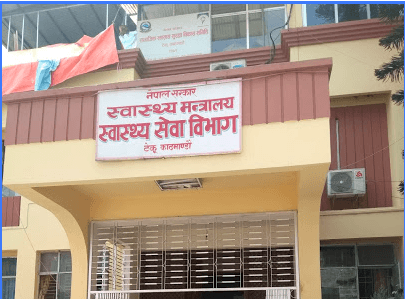Kathmandu: The Family Welfare Division (FDW) under the Department of Health Services set to begin its measles-rubella mass immunization campaign in two phases. The first phase of the immunization campaign will start on February 13 in Provinces 1, 2 and 5. The second phase will take place in Province 3, Gandaki, Karnali and Sudurpaschim provinces from March 14.
The FWD expects to immunize 30 lakhs children between the ages of 9 months to 5 years old in a two-phased mass immunization campaign. This will increase coverage for immunization to reduce the number of child deaths and ineligibility in children to meet WHO-2023 goal of removing measles from the country.
The government has been running 16,000 immunization centers across the country.
Immunization officer at Family Welfare Division, Mr.Bharat Bhandari said-“We are extending centers this year as the mass immunization campaign includes children between nine months and five years of age. Children who missed the second dose of vaccines will also be included in the campaign.”
According to Nepal Demographic Health Survey, the percentage of children aged 12 to 23 months old, who received all basic vaccines fell to 78 percent in 2016 from 87 percent in 2011.
Health practitioners have demanded that vaccine supervisors, vaccine officials, and cold chain officials be well managed to meet the goal of the immunization campaign.
Bhandari said that the government provides two doses of measles vaccines for children at nine months and 15 months from health facilities across the country. Immunization is the most cost-effective and efficient way to control and eliminate vaccine-preventable diseases that contribute to childhood illness and death.
According to the World Health Organization, measles is especially dangerous for the poor because it attacks malnourished children and those with low immunity.
Measles can lead to serious complications including blindness, encephalitis, severe diarrhea, ear infections, and pneumonia while rubella causes irreversible birth defects.
Source: THT







